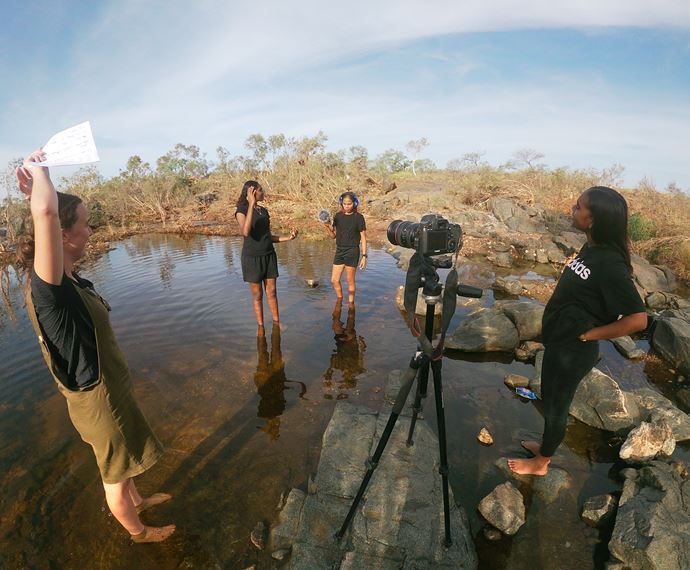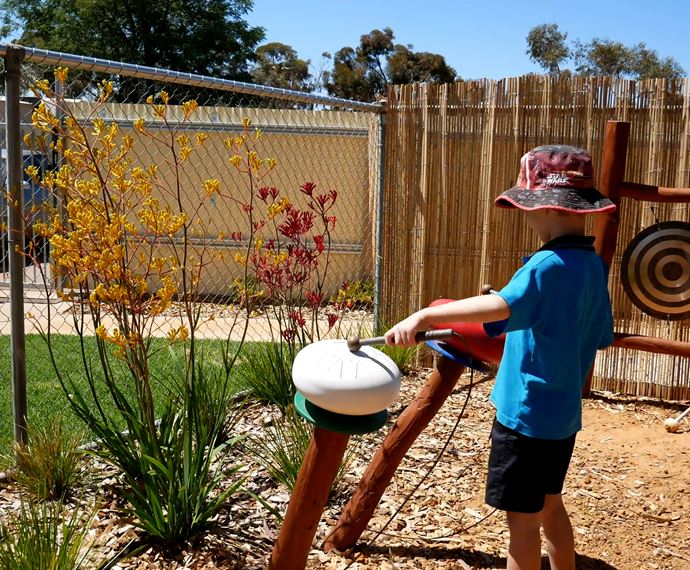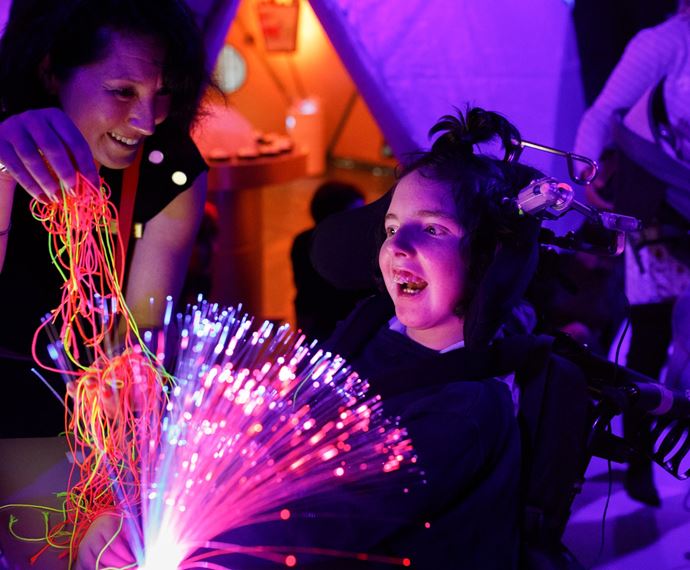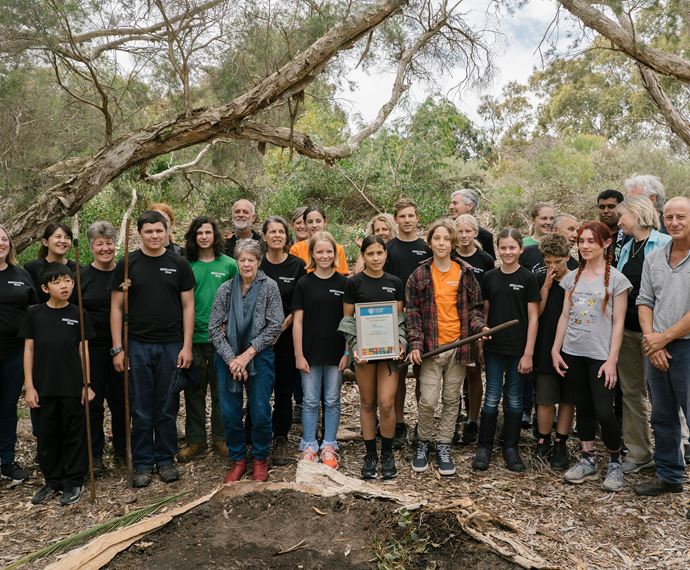Supporting individuals with cystic fibrosis
Cystic Fibrosis Western Australia (CFWA) is a social enterprise that funds research and provides essential support services for people affected by cystic fibrosis (CF).
In 2019, they received a grant from Lotterywest to develop a mental health program that would improve and enhance the mental wellbeing of youth living with CF and their carers.
Towards projects to improve health literacy to support volunteers, young people and their families who are living with Cystic Fibrosis.
Cystic Fibrosis Western Australia (Inc)
3/21/2019
$331,855
Lotterywest
$190,933
Statewide
Children (12 years and under), Young people (aged 13-17)
- 20 young people with Cystic Fibrosis received support through the program.
- 115 people joined the Cystic Fibrosis social media community.
- 75 parents and carers had the opportunity to network and get the information they needed to provide support to their loved ones.
- Thinking about the whole picture and recognising that mental health is about more than just individual support and management.
- Employing a dedicated social worker to provide individualised support.
- Creating online communities to support engagement of individuals with chronic illness.
- Including evaluation and testing in the building of pilot programs so they can have long-term impacts.
- Partnering with Volunteering WA to build the capacity of the volunteer base and development of volunteer resources.
- Being too prescriptive in budget line items during project development resulted in less flexibility to respond to change as the project developed.
Opportunity
CF is a chronic medical condition that affects the lungs and digestive system. According to the most recent data from 2018, approximately 385 people live with CF in Western Australia, with around half under the age of 18 [1].
Young people with CF often experience poorer mental health outcomes than the general population. This can be attributed to the existing challenges of managing a chronic illness, being unable to socialise with peers due to the risk of cross infections, and the difficulty of transitioning from paediatric to adult health services. These poorer outcomes also extend to parents and carers of young people with CF [2].
There may also be a need for dedicated support and guidance for siblings of children with CF. Managing CF can disrupt family routines, take up the time of caregivers, or isolate people from peers who don’t understand CF and how it affects families.
CFWA identified the opportunity to provide mental health support to young people with CF, their families and their carers.
Approach
CFWA chose to focus on supporting the entire CF community recognising that young people with CF do not exist in isolation and are a part of families and communities. To have a high impact, CFWA chose a number of strategies to tackle the issue:
- Providing direct individual therapeutic support for individuals living with CF.
- Creating safe spaces for peer connection.
- Developing the capacity of the volunteer base supporting people with CF.
- Providing respite and support for families and carers including a sibling camp.
“A big emphasis in the last couple of years has been around enhancing mental well-being in the community. Our aim is to build connection through events and social media and all sorts of creative ways to connect people and deal with that isolation.”
Kathryn Pekin, Services Manager
CFWA employed a qualified social worker, Haylee Riddell, to focus on providing therapeutic support, developing resources, and facilitating peer support spaces. Support for young people focused closely on those transitioning from Perth Children’s Hospital to adult health services at
Sir Charles Gairdner Hospital.
As young people with CF cannot socialise directly, CFWA chose to use online resources to create a community space. Resources included video case studies highlighting the human impact CF has on those living with the disease, as well as a dedicated Instagram account to share messages, support and resources.
Engagement with families and siblings also enabled individuals to develop their health literacy and support networks, including through a family event for the Australasian Cystic Fibrosis Conference held in Perth.
“It was the first time in Perth for a very long time, we had 75 carers and parents attend the conference, so it built up a lot of health literacy.”
Kathryn Pekin, Services Manager
CFWA strengthened the quality of the resources produced under the grant by partnering with other organisations. To build the capacity of their volunteer base, they partnered with Volunteering WA to produce a Volunteer Handbook. Volunteering WA was able to provide resources to staff to implement improved processes for community volunteers. To support young people transitioning from paediatric to adult health services, CFWA is collaborating with tertiary hospitals.
Impacts and outcomes
Until December 2021, as a result of the grant
20


young people with CF were directly involved with the program and received support
115


people joined the Cystic Fibrosis WA social media community
75


carers and parents had the opportunity to network and get the information they needed to provide support to their loved ones
What worked
Thinking about the whole picture
CFWA looked at the whole picture recognising that mental health is about more than just individual support and management. The approach was from multiple angles, improving outcomes for individuals, families and carers.
Employing a dedicated worker to provide individual support to match young people’s needs
Producing online resources and support can assist individuals to seek help and manage issues early, but intensive care assists people to increase their capacity and manage their own wellbeing more effectively.
Creating online communities can be beneficial for individuals with chronic illness
Online communities support accessibility, particularly for individuals who are immunocompromised or unwell. These can support sustainable engagement if online communities are maintained.
Building and testing pilot programs through limited-term funding can have long-term impacts if appropriately evaluated and assessed
CFWA is now working to embed the social worker and mental health support activities into their core funding.
Key challenges
Plan with broad budget categories to allow for change
It is always important to develop a well thought out and accurate budget. However, sometimes budget line items can be too prescriptive and become unnecessary throughout the course of the grant. Kathryn Pekin, CFWA Services Manager commented that they were able to address this by seeking permission from Lotterywest to shift some of the funding to develop more short films as we received a lot of positive feedback about these from members in the community. Kathryn noted that “it was good to be able to have the discussion and flexibility with Lotterywest and ensure we were still meeting the core aims of the grant”.
REFERENCES
- Ruseckaite, R., Ahern, S., Ranger, T., Dean, J., Gardam, M., Bell, S. and Burke, N. 2019. The Australian Cystic Fibrosis Data Registry Annual Report, 2017. Melbourne, Vic: The Australian Cystic Fibrosis Data Registry.
- Quittner, A., Goldbeck, L., Abbott, J., Duff, A., Lambrecht, P., Solé, A., Tiboshc, M., Brucefors, AB., Yüksel, H., Catastini, P., Blackwell, L., Barker, D. 2014. Prevalence of depression and anxiety in patients with cystic fibrosis and parent caregivers: results of The International Depression Epidemiological Study across nine countries. Thorax 69 (12):1090–1097. doi:10.1136/thoraxjnl-2014-205983.
Learn about wellbeing
Understand how your community is going to help you to better target and plan your project.
Ready to plan your project?
Understand your vision, plan your impact and report on the outcomes of your project with three easy interactive tools in the Community Impact Planner.
Acknowledgement of Country
The Western Australian Community Impact Hub acknowledges and pays respect to the Traditional Owners of the land on which we are based, the Whadjuk people of the Noongar Nation and extends that respect to all the Traditional Owners and Elders of this country. We recognise the significant importance of their cultural heritage, values and beliefs and how these contribute to the positive health and wellbeing of the whole community.

![035 Web[1]](/media/znvf1qaa/035-web-1.jpg?anchor=center&mode=crop&width=690&height=570&rnd=133045228680670000&quality=80)
![IMG 8451[1]](/media/yhnbmsph/img_8451-1-resized.jpg?anchor=center&mode=crop&width=690&height=570&rnd=133045355965530000&quality=80)



